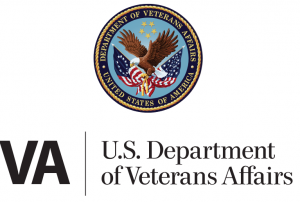 A former postdoc at the U.S. VA Health Care System in Albuquerque, N.M., committed misconduct in three papers, the agency announced today.
A former postdoc at the U.S. VA Health Care System in Albuquerque, N.M., committed misconduct in three papers, the agency announced today.
Alba Chavez-Dozal, who studied the basic science underpinnings of infectious diseases, had three papers retracted between 2015 and 2016. In findings dated July 18, 2018, but released today, the VA said that Chavez-Dozal, “a post-doctoral research fellow who formerly held a VA without compensation appointment, engaged in research misconduct by intentionally and/or knowingly:”
- fabricating data to present at two lab meetings
- fabricating a photo of a Southern blot and falsifying other results “by using microscopy images that represent different conditions than those reported” in a now-retracted 2015 paper
- falsifying results “by using the same protein gel to represent two different experiments” and “by using images that represent different conditions than those reported” in another now-retracted 2015 paper
- republishing falsified data from both papers in a now-retracted 2016 review article
The VA has banned Chavez-Doval from research at the agency for four years. We were unable to find contact information for her.
Like Retraction Watch? You can make a tax-deductible contribution to support our growth, follow us on Twitter, like us on Facebook, add us to your RSS reader, sign up for an email every time there’s a new post (look for the “follow” button at the lower right part of your screen), or subscribe to our daily digest. If you find a retraction that’s not in our database, you can let us know here. For comments or feedback, email us at [email protected].
“a post-doctoral research fellow who formerly held a VA without compensation appointment”
Am I correct in understanding that this fellow wasn’t getting paid? Could this have been a motivating factor in their actions?
Irrelevant
No, very relevant.
If someone is desperate enough to take an unpaid position that may be full time, they are betting very hard that they will get something out of that job to take them further in their career. It doesn’t make what they did right, but it makes it understandable.
Secondly, it also suggests that maybe the VA shouldn’t be hiring people in unpaid positions. If people in unpaid positions are more desperate, they’re more vulnerable to temptations to do unethical things. You wouldn’t have someone who owes money to the mafia guarding your life savings. Perhaps you also don’t want someone desperately trying to turn their graduate school investment into a viable career from being trusted in research.
Thirdly, if there are people desperate enough to work in science without pay, then it suggests that we need to do more to help the vast majority of PhD holders to get decent work outside of the lab. That’s where they’re going to end up anyway and they should receive some help or education about how to get a decent career.
Morally, research misconduct is wrong and whether you’re paid or not doesn’t change that. But whether the perpetrator was paid or not could speak to all sorts of issues at play that are at least worthy of consideration, investigation and potentially changes in policy.
Besides the unpaid VA appointment, Chavez-Dozal’s affiliation also includes University of New Mexico Health Science Center. Maybe that’s how she was paid and that VA thing is just some sort of courtesy appointment.
So maybe this other institute should also be involved? How strange.
Pay or no pay, cheating is incorrect and a waste of my taxpayer money. A 4-year ban is putrid, this person should never get anywhere near a lab.
As a taxpayer, I don’t want to be in a position of continually blaming one or another individual. I would rather make it a requirement that, for my money to be used to support publicly-funded research, there must be policies/procedures/practices in place that do not permit ANY single bad actor to place bogus results amid purportedly-legitimate scientific output.
It should follow that whenever bogus results are discovered, MULTIPLE people should be held accountable.
I’m tired of seeing institutions follow up retractions with (true or not) findings that “we found the cheating postdoc who is solely responsible for all of this”.
If institutes don’t want that, then I don’t want them to have my money — and I will say so to my elected representatives.
This is interesting! Whose lab was she working in???? She was definitely not the head/PI in the lab. Who was? Why are they not held accountable? This is ridiculous a postdoc would be held accountable and the PI whose I am sure is a VA employee and most likely the last author on the papers, is not! yes, she probably was paid, but postdocs are in a VERY vulnerable position and someone simply shifted the blame. Working in a VA lab, I am certain that if someone really looks very carefully, research misconduct will be found in every 2nd if not every lab.